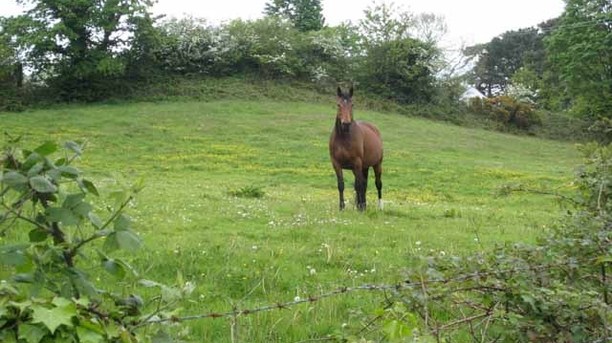Spring Strategies For Equine Wellness
Most horses begin “spring training” with a visit from their veterinarian. These trips generally involve spring vaccinations, dental exams and the completion of a Coggins test and a health certificate.
Author:Xander OddityReviewer:Dr. Felix ChaosphereOct 26, 20234.6K Shares65.3K Views

Most horses begin “spring training” with a visit from their veterinarian. These trips generally involve spring vaccinations, dental exams and the completion of a Coggins test and a health certificate. The vet will also give the horse a thorough once over, evaluating the horse's general body condition and health, as well as soundness.
Many horses that have had reduced workloads over the winter months will need a gradual reintroduction to heavier work, which can be determined with the vet. Also discussed should be the administration of a fecal exam to check for worm loads, as well as a feeding plan, which is especially important if a horse is an easy keeper.
The vet will also administer spring vaccines, which should, for the most part, follow the American Association of Equine Practitioners core vaccination guidelines. These should include Eastern equine encephalomyelitis, Western equine encephalomyelitis, and West Nile virus. Rhinopneumonitis, influenza, tetanus, and rabies are also generally administered at the same time.
A Coggins test, which tests a horse's blood for equine infectious anemia (EIA), will also be administered if the horse will travel across state lines; many horse shows and other events require this test as well. EIAis carried by biting flies; there is no vaccine so the only way to control the virus is to determine carrier horses and isolate them from the general equine population.
Warming temperatures also mean an increased risk of internal parasites. A fecal sample should be taken to determine the worm load the horse is carrying, if any, after the winter. An additional fecal sample will be taken 12 to 16 weeks after deworming (if applicable) to determine if the horse a “high shedder” or a “low shedder” of parasite eggs.
A horse's teeth should also be checked to ensure that there are no sharp points or other areas of discomfort that prevent the horse from chewing properly and obtaining all of the nutrients from his feed. The flush of spring grass can lead to colic, so gradually increasing time on green grass is advised.
Target mosquito breeding sites early, eliminating standing water and ensuring that gutters drain well. Using mosquito dunks in ponds and water tanks can also help control mosquito populations. Parasitic wasps can be employed to eat fly larvae, which will reduce the numbers of flies on the farm, making all equines more comfortable.

Xander Oddity
Author
Xander Oddity, an eccentric and intrepid news reporter, is a master of unearthing the strange and bizarre. With an insatiable curiosity for the unconventional, Xander ventures into the depths of the unknown, fearlessly pursuing stories that defy conventional explanation. Armed with a vast reservoir of knowledge and experience in the realm of conspiracies, Xander is a seasoned investigator of the extraordinary.
Throughout his illustrious career, Xander has built a reputation for delving into the shadows of secrecy and unraveling the enigmatic. With an unyielding determination and an unwavering belief in the power of the bizarre, Xander strives to shed light on the unexplained and challenge the boundaries of conventional wisdom. In his pursuit of the truth, Xander continues to inspire others to question the world around them and embrace the unexpected.

Dr. Felix Chaosphere
Reviewer
Dr. Felix Chaosphere, a renowned and eccentric psychiatrist, is a master of unraveling the complexities of the human mind. With his wild and untamed hair, he embodies the essence of a brilliant but unconventional thinker. As a sexologist, he fearlessly delves into the depths of human desire and intimacy, unearthing hidden truths and challenging societal norms.
Beyond his professional expertise, Dr. Chaosphere is also a celebrated author, renowned for his provocative and thought-provoking literary works. His written words mirror the enigmatic nature of his persona, inviting readers to explore the labyrinthine corridors of the human psyche.
With his indomitable spirit and insatiable curiosity, Dr. Chaosphere continues to push boundaries, challenging society's preconceived notions and inspiring others to embrace their own inner tumult.
Latest Articles
Popular Articles